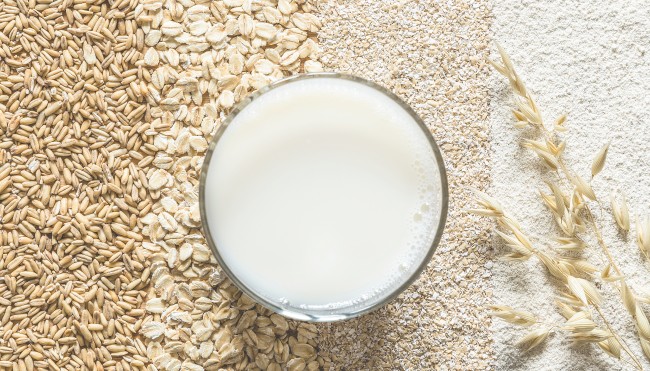Plant-Based Milk Alternatives
Whether you’re lactose intolerant, vegan or simply looking to reduce your dairy intake plant-based milk alternatives abound. But which is the best one for you?
A word of caution…
Plant-based milk alternatives have loads of great benefits but there are a few common issues across the board. Commercial products often contain unnecessary additives such as sweeteners, stabilizers, and thickeners. Avoid these baddies by making your own at home or be sure to pay extra careful attention to labels at the supermarket. And, if you’re on a zero waste mission, you’ll find buying plant-based milk adds to your recycling. As always, you need to think about what best aligns with your values and fits your nutritional needs. Store-bought milk alternatives are also a great source of calcium for vegans but there are other sources too.
1. Soy Milk
In the past soy milk was the go-to dairy-free milk alternative but in recent years it’s lost popularity for several reasons. The first is because it contains phytoestrogens – a naturally occurring estrogen-like compound found in some plants. When soy is consumed in high quantities, these phytoestrogens may interfere with human hormones, affecting women’s menstrual cycles and fertility. The other reason is that the majority of soy produced is genetically modified and sprayed with potentially harmful chemicals. Of course, it’s not all bad… Soy milk is high in protein and low in fat. It’s also often enriched with other beneficial minerals and vitamins. Just be sure to stick to small quantities of organic, non-GMO soy milk if it’s your choice.
Pros
- Low fat
- High in protein
- Fortified with calcium, vitamins A & D
Cons
- Potential endocrine disruptor
- Often made with GMO soybeans
2. Almond Milk
Almond milk has over-taken soy and is now the most widely used plant-based milk. It is a low-fat, anti-inflammatory, antioxidant-rich option which many enjoy for its creamy texture and nutty flavor. It has fewer nutrients that coconut milk but is still one of the best options out there. Like other plant-based milk is usually fortified with vitamins and minerals.
Pros
- Low fat
- Anti-inflammatory
- Usually fortified with calcium & vitamin D
Cons
- Not suitable for people with nut or soy allergies
3. Coconut Milk
Another popular choice amongst the health-conscious, coconut milk is a great option for people with soy and nut allergies. It contains lauric acid, a medium-chain fatty acid that is an easily absorbed source of energy. Coconut milk is higher in calories than other plant-based milk but lower in protein. Since coconut milk has a distinct flavor, it’s not for everyone and if you plan on using a lot in your coffee and smoothies, you’re probably better off with a lower fat-content option like almond milk.
Pros
- Good alternative for people with soy and nut allergies
- High in vitamin B12 (otherwise commonly found in meat & dairy products)
- Contains lauric acid
Cons
- Low protein content
4. Rice Milk
Like coconut milk, rice milk is suitable for people with soy and nut allergies. However, compared to coconut milk and other plant-based milk alternatives, rice milk leaves a lot to be desired. Since it’s simply made from rice and water, rice milk doesn’t offer much by the way of nutritional value. Flavor and texture-wise it is probably the least exciting of the lot too. Rice milk tends to be less creamy and very sweet as it often has a lot of added sugars.
Pros
- Suitable alternative for people with soy and nut allergies
Cons
- High in carbohydrates
- Thinner/Less creamy than other alternatives
5. Oat Milk
Like other plant-based milk, oat milk is made by soaking oats in water overnight, blending and then straining the mixture, leaving you with a creamy “milk”. It’s cheap and easy to make at home which is handy if you’re baking a vegan recipe. Store-bought oat milk is a pretty good all-rounder - low in fat, moderate protein and fortified with calcium which is important if you don’t get your calcium from other sources. It also contains beta-glucan which can help regulate cholesterol levels.
Pros
- Low fat
- Contains Beta-Glucan
- Fortified with calcium and vitamins
Obviously, these are just the most common milk alternatives out there. If you want to try something different you can also choose from macadamia, cashew, flaxseed milk and many more. If you’re feeling really enthusiastic, why don’t you try making your own coconut or almond milk? It tastes better, there are no additives, and you can use the leftover pulp for baking too, so you’re producing zero waste.





